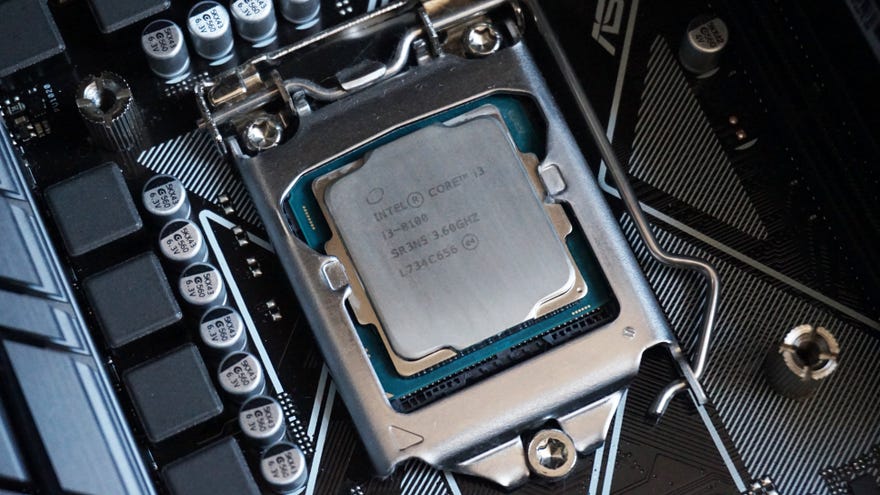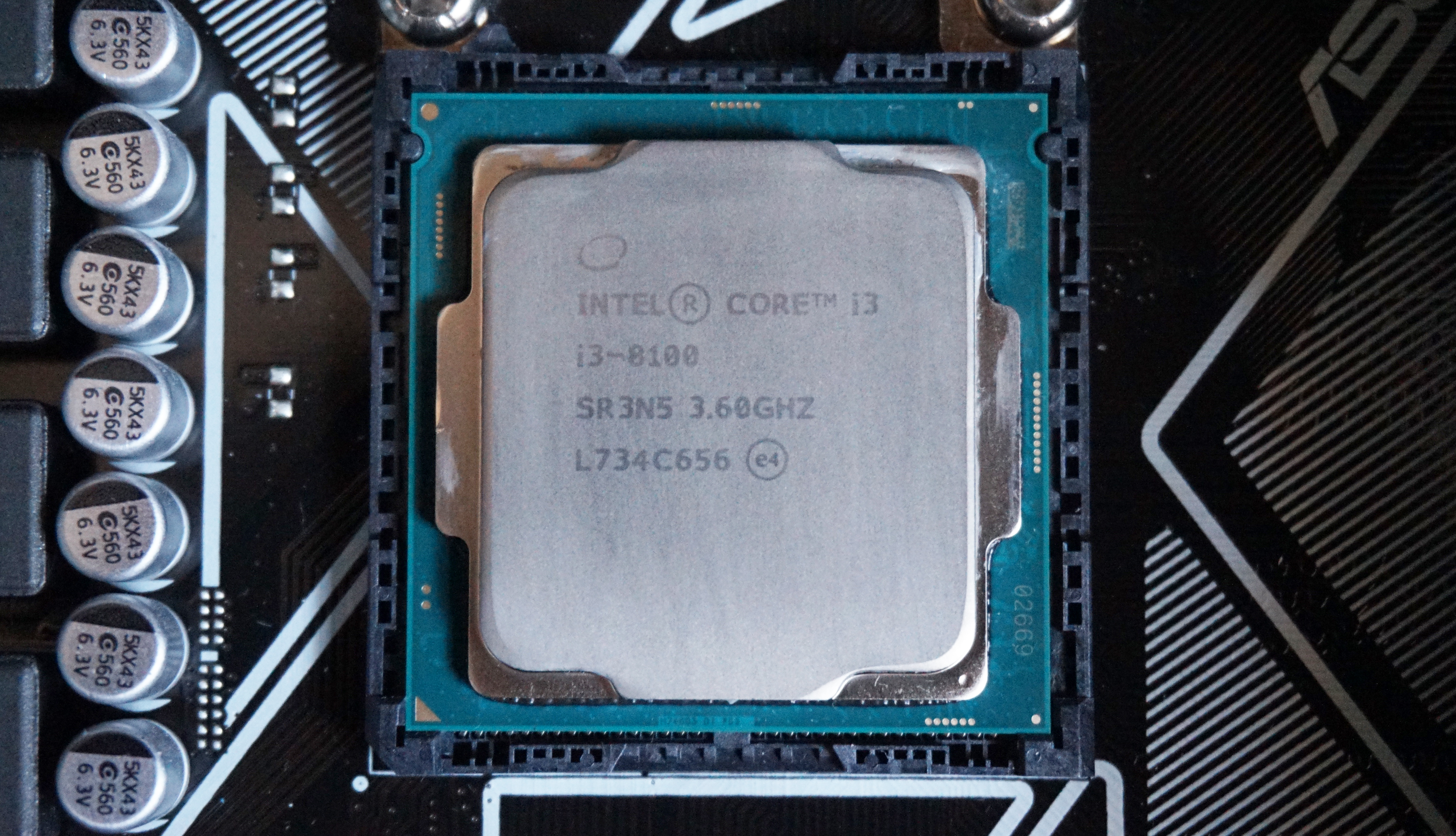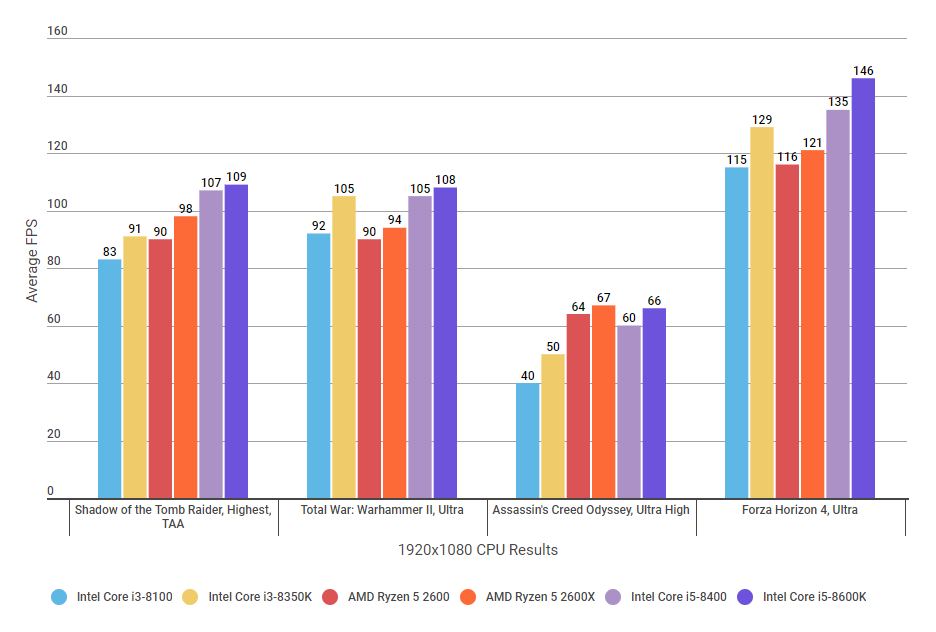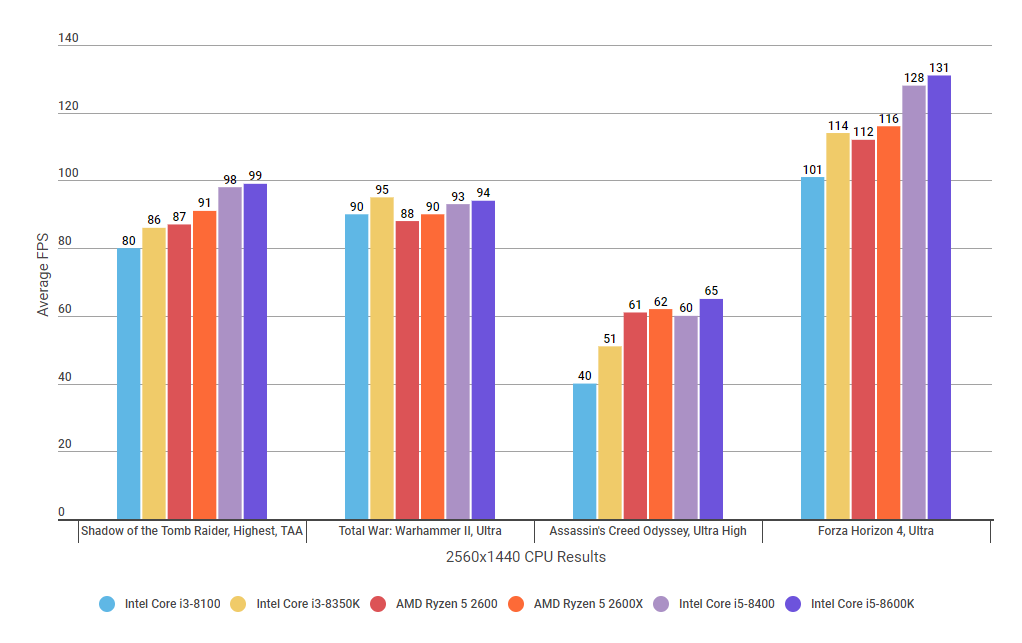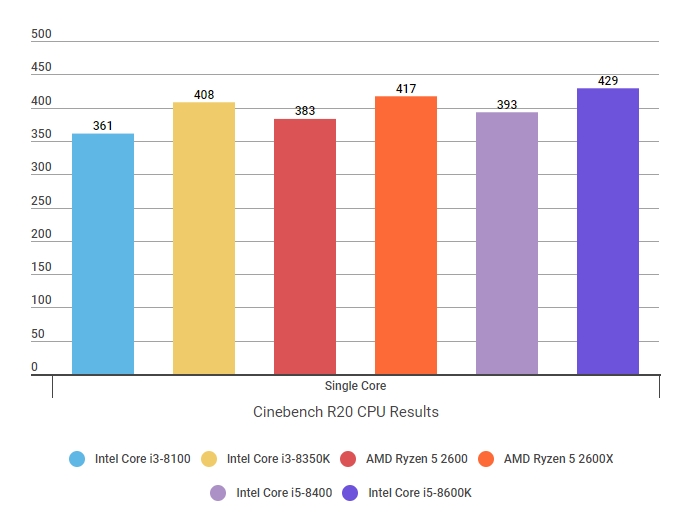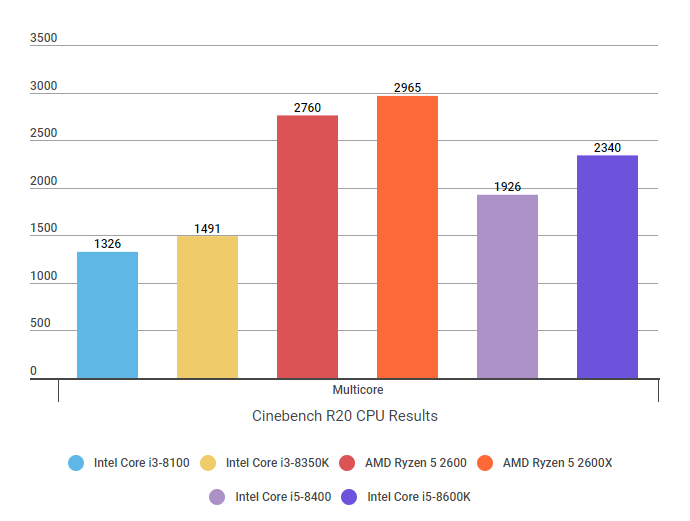Intel Core i3-8100 review: A great entry-level gaming CPU
Cheap as chips
At just £120 / $130, Intel's Core i3-8100 is one of the cheapest gaming CPUs you can buy today. It's a pretty tempting package, too. Unlike previous generations of Intel's Coffee Lake Core i3 chips, the i3-8100 comes with four cores clocked at a reasonably nippy 3.6GHz, and its 1080p gaming performance impressed when I first saw it inside Overclockers UK's Kinetic Z1 gaming desktop.
However, now that I've had a chance to test it against some of its other Core i3 siblings, such as the top-end Intel Core i3-8350K, and its rival AMD Ryzen 5 2600 CPU, is it worth spending a little bit more on your gaming CPU, or can the Core i3-8100 still hold its own as the go-to best gaming CPU for those on a budget? Here's wot I think.
In short, the Core i3-8100 is still a decent gaming CPU, but now that prices for the Ryzen 5 2600 have come down so dramatically since it first launched, AMD's entry-level processor is a much more enticing proposition for budget PC builders. Costing just £5 more in the UK and $20 more in the US, the Ryzen 5 2600 offers vastly superior gaming performance pretty much across the board.
Admittedly, testing a CPU's gaming performance is still a bit of a difficult exercise. As our friends at Digital Foundry have explained in the past, a lot of benchmarks either don't test your CPU properly, or simply aren't very accurate in the first place. Fortunately, a handful of gaming benchmarks have become a lot better at this recently, with the likes of Shadow of the Tomb Raider, Forza Horizon 4, Assassin's Creed Odyssey and more all providing an in-depth look at your CPU's performance as well as what your graphics card's doing.
That said, there are also several other factors that can impact gaming performance, such as your graphics card, the type of RAM you've got, and even what type of storage you've installed the game on. As a result, getting a truly accurate picture of a CPU's gaming performance is tricky, but I've done the best I can with the equipment available to me.
I've also focused a lot more on gaming performance than I have, say, on application performance or media creation bits and bobs in this review because, well, it's the former I'm interested in, not the latter. I've included some cursory Cinebench scores as a basic indicator of what each CPU will be like for general desktop tasks, but really, my main goal here is to work out what CPU is the best for gaming and gaming alone.
With this in mind, then, let's take a look at the figures. Straight off the bat, then, the Core i3-8100 puts up a pretty good fight against the Ryzen 5 2600, offering pretty much identical performance in Forza Horizon 4 (at least at 1080p), and ever so slightly better speeds in Total War: Warhammer II. However, it falls behind quite significantly in Shadow of the Tomb Raider and Assassin's Creed Odyssey, both at 1080p and 1440p.
I should note, of course, that Assassin's Creed Odyssey was developed in partnership with AMD in order to take advantage of some of their special hardware features (AMD's Ryzen and Radeon logos appear alongside Ubisoft's when you fire up the game, for example), but even I was surprised that there was such a gap (an average of 24fps!) between the i3-8100 and its Ryzen rival.
Of course, it's hard to say whether you'll see the same kind of performance jump on the lower-end GPUs you'd probably be pairing these particular processors with, but it's still an impressive leap for a CPU that only costs another £5 in the UK, and it's almost certainly worth the extra $20 you'll need to spend on it over in the US, too.
What's more, the Ryzen 5 2600 puts up a pretty good fight against Intel's top-end 8th Gen Core i3 as well, the Core i3-8350K, which is priced even higher at £170 / $195. While the i3-8350K has the edge in Total War and Forza Horizon, the Ryzen 5 2600 offers pretty much identical performance in Shadow of the Tomb Raider, and faster speeds in Assassin's Creed Odyssey. Plus, the Ryzen's two extra cores give it a lot more oomph for general desktop tasks, too (see its single and multicore Cinebench scores below), making it a better all-round CPU than its Intel rival.
There could be an argument for spending that extra £50 / $50-odd on the Core i3-8350K if the Ryzen 5 2600 ever went up in price, for example, but it is worth noting that you'll still have to factor in the cost of a cooler if you decide to go for the Core i3-8350K, as annoyingly it doesn't actually come with one in the box, unlike the Core i3-8100 and Ryzen 5 2600. That will naturally raise costs even further - probably nearer the £200 / $200 mark depending on the model - at which point you may as well just opt for something even better such as the Intel Core i5-8400 or even AMD's Ryzen 5 2600X.
It's probably worth waiting to see what AMD's new Ryzen 5 3600 CPU can do as well, which is due to launch on July 7th for $199 (UK pricing TBC), but if £150 / $150 is the absolute limit of what you want to spend on your gaming CPU, then it really doesn't get much better than the Ryzen 5 2600.
